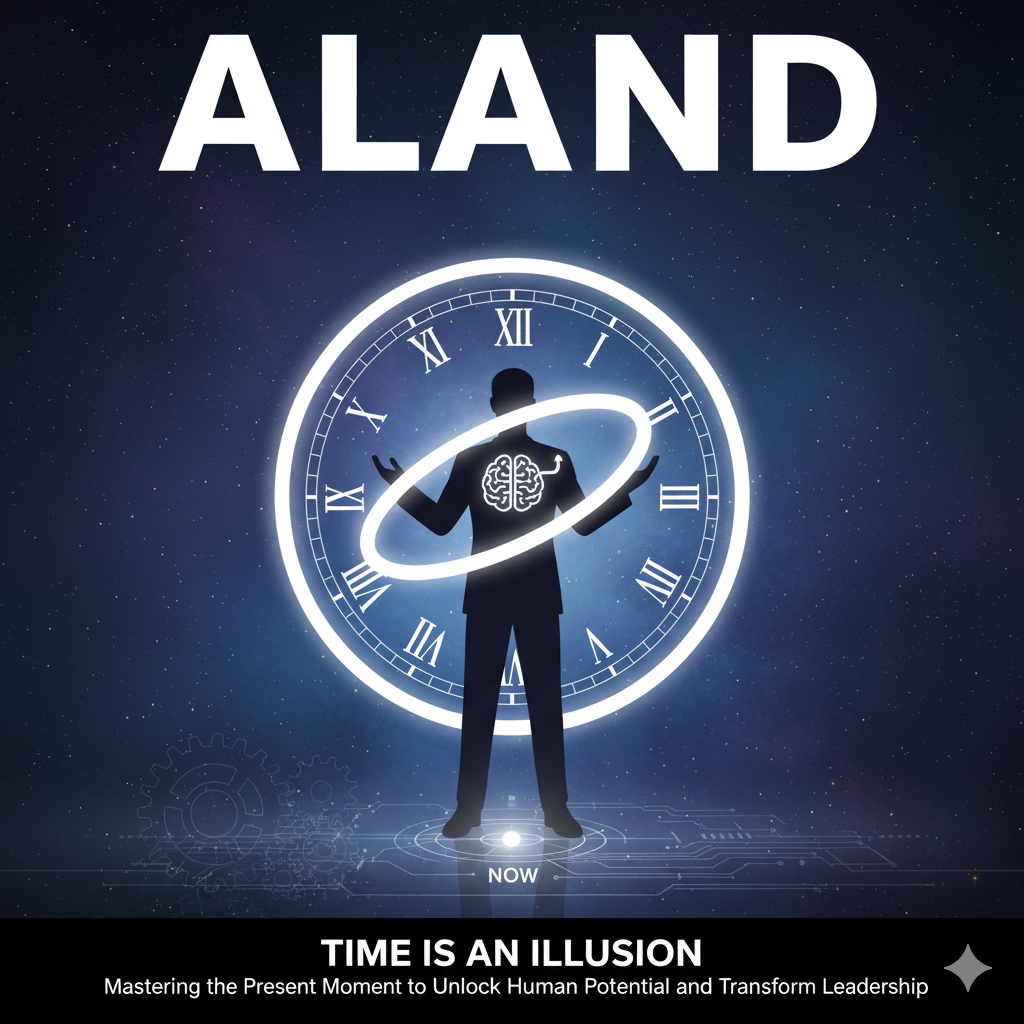Time Is an Illusion: Mastering the Present Moment to Unlock Human Potential and Transform Leadership
- Published Date: 8th Oct, 2025
-
4.9★ ★ ★ ★ ★(145)

Time governs almost every decision we make. It structures our calendars, dictates our goals, shapes our ambitions, and defines success or failure. Yet for all its power, time is not a force of nature — it is a human invention. It is a language we built to measure change, a mental framework that organizes experience into past, present, and future. When we stop treating time as an unchangeable reality and start seeing it as the tool it truly is, we unlock a level of human potential most people never reach.
This shift — from being slaves to time to becoming masters of the present — is more than a philosophical idea. It is a fundamental transformation in how we think, act, lead, and live. In business, in leadership, and in life, this shift determines whether we are constantly chasing outcomes or actively shaping them.
The Illusion of Time and the Trap of Linear Thinking
Humans invented time to bring order to change. Seconds, hours, and years are simply measurements — ways to describe how events unfold. But over centuries, this tool became a cage. We began to believe that time itself controls us, that we are its prisoners, racing against a ticking clock we cannot stop.
This illusion shapes corporate culture in subtle but powerful ways. We divide the world into quarters and fiscal years, set deadlines that often matter more than outcomes, and obsess over speed as if faster always means better. In doing so, we forget that time is not a force pressing down on us. It is a perspective we created — and one we can reshape.
Once we recognize this truth, a new possibility emerges: instead of reacting to time, we can learn to shape our actions from the only point that truly exists — the present moment.
The Present Moment: The Only Place Where Action Happens
The past is memory. The future is imagination. The present is reality. Yet most people spend their lives trapped in the other two. We replay mistakes we cannot change or chase outcomes that do not yet exist. In that distraction, we miss the only space where real decisions, creativity, and leadership happen — now.
Mastering the present moment is not about ignoring the future or forgetting the past. It is about shifting the center of gravity back to where your power truly lies. In the present, you are free from regret and fear. You are no longer reacting to the clock — you are responding to reality.
For leaders, this shift is revolutionary. It transforms how we make decisions, how we guide teams, how we design systems, and how we live.
Why Time Mastery Matters in Leadership and Human Potential
Better Decisions Through Presence Most bad decisions are born from fear of the future or guilt about the past. When leaders are grounded in the present, decisions are clearer, faster, and more strategic. You focus on the reality of what is, not the speculation of what might be.
Creativity Without Boundaries Innovation rarely happens on a schedule. Breakthrough ideas emerge when the mind is deeply present and free from the pressure of time. Teams that operate in “flow” — a timeless state of focus and creativity — produce more meaningful work than those bound by rigid deadlines.
Leadership That Inspires Trust A leader anchored in the present listens more deeply, communicates more clearly, and inspires more strongly. Presence creates trust, and trust amplifies influence.
Organizations That Evolve Beyond the Clock When businesses stop treating time as their master and start designing around human rhythms, they become more adaptive, resilient, and future-proof. Performance improves not by adding more hours, but by creating the right moments.
Strategies to Break Free from Time’s Psychological Chains
Shift from Deadlines to Decisions Deadlines often serve the calendar more than the mission. Ask instead: “What is the most impactful action now?” This reframing aligns your focus with context and purpose rather than arbitrary dates.
Redefine Performance Beyond the Clock Measure success not by hours worked or speed of delivery but by quality of outcomes, depth of thinking, and long-term impact. Time spent is not the same as value created.
Design for Flow, Not for Schedules Structure work and life around natural rhythms of energy, attention, and creativity. Deep work sessions, focused collaboration, and mindful breaks outperform rigid time blocks.
Practice Present Awareness Daily Simple habits — mindful breathing before meetings, digital detox intervals, reflective pauses — train the mind to stay anchored in the present. Over time, this becomes a superpower.
Reframe Time as a Tool, Not a Master Time should serve your purpose, not dictate your limits. Use it strategically to create structure but never let it define your limits.
Beyond Time: The Future of Human Potential
The greatest transformations in history have come not from those who had the most time, but from those who mastered it. The innovators, thinkers, and leaders who shaped civilizations were not rushing against the clock — they were deeply present in the moments that mattered.
When we stop worshipping time and start understanding it as an illusion, our relationship with work, growth, and purpose changes completely. The question shifts from “How much time do we have?” to “What can we create now that outlives time itself?”
This is not just a mindset shift — it is the foundation of a new era of leadership and human evolution.
The illusion of time dissolves the moment we stop chasing it. What remains is the boundless potential of the present — the space where humanity creates, leads, and transforms. In that timeless space, the future is no longer something we wait for. It becomes something we build, one conscious moment at a time.

